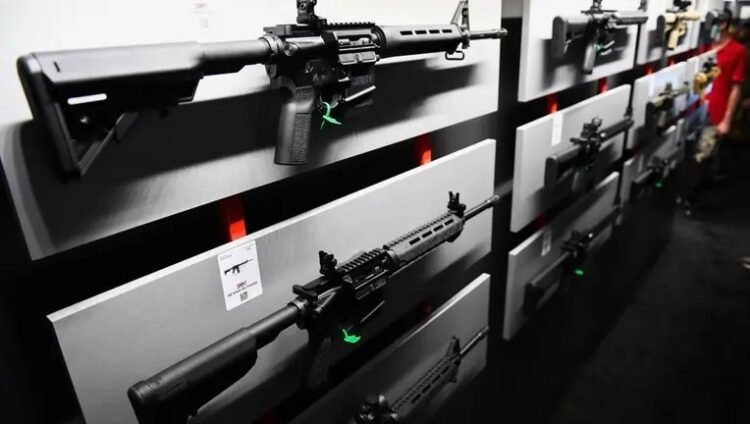WASHINGTON — The U.S. Supreme Court on Monday declined to take up a case challenging Maryland’s ban on assault weapons, leaving in place one of the country’s strictest laws targeting semi-automatic rifles such as the AR-15 — firearms central to America’s ongoing debate over gun rights and mass shootings.
The split decision, made without explanation as is customary, drew sharp disagreement from several of the court’s conservative members. Justices Samuel Alito and Neil Gorsuch said they would have taken the case, while Justice Clarence Thomas went further, writing that the law “likely violates” the Second Amendment.
“I would not wait to decide whether the government can ban the most popular rifle in America,” Thomas wrote, referring to the AR-15. “That question is of critical importance to tens of millions of law-abiding AR-15 owners throughout the country.”
Justice Brett Kavanaugh, though agreeing with the decision to defer the case, signaled that he remains “skeptical” of the constitutionality of such bans and anticipates the issue will return to the Court “in the next term or two.”
The Maryland law in question was enacted in 2013, shortly after the Sandy Hook Elementary School shooting in Newtown, Connecticut — a massacre that claimed the lives of 20 children and six adults. The shooter used an AR-15-style weapon, prompting lawmakers in Maryland and other states to act swiftly on gun restrictions.
Today, ten states and the District of Columbia maintain similar bans on assault weapons, covering major population centers including New York, California, and Illinois. At the federal level, Congress allowed the national ban to expire in 2004, despite ongoing efforts by some Democrats to reinstate it.
Gun rights advocates, including those who brought this case, argue that such bans infringe on constitutional protections and prevent law-abiding citizens from owning widely used firearms. They had hoped the Court would use this case to build on a 2022 decision that expanded Second Amendment rights and cast doubt on many longstanding gun laws.
But for now, Maryland’s ban — and those like it — will remain in effect, as the nation’s highest court continues to navigate the politically charged intersection of gun rights, public safety, and constitutional law.

 English
English



























































